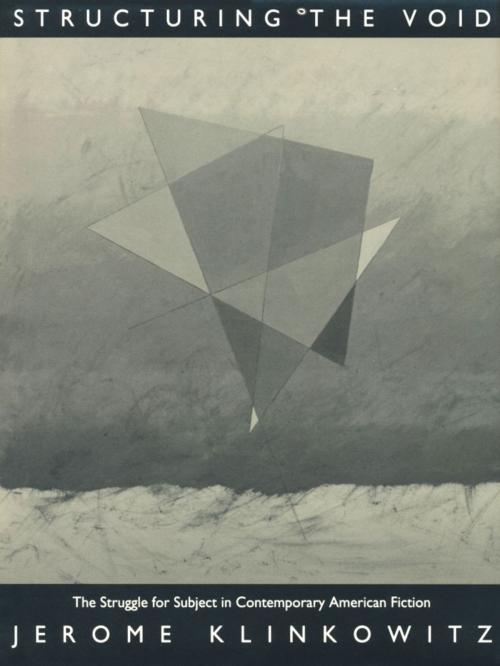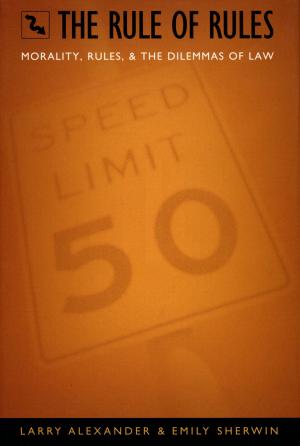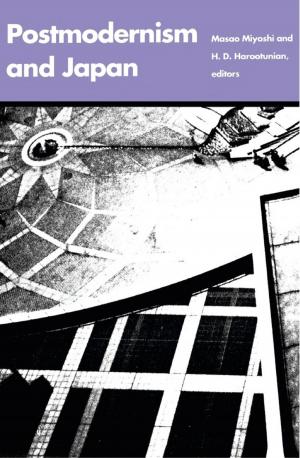Structuring the Void
The Struggle for Subject in Contemporary American Fiction
Fiction & Literature, Literary Theory & Criticism, American| Author: | Jerome Klinkowitz | ISBN: | 9780822399391 |
| Publisher: | Duke University Press | Publication: | August 1, 2012 |
| Imprint: | Duke University Press Books | Language: | English |
| Author: | Jerome Klinkowitz |
| ISBN: | 9780822399391 |
| Publisher: | Duke University Press |
| Publication: | August 1, 2012 |
| Imprint: | Duke University Press Books |
| Language: | English |
If, as the literary theorists of postmodernism contend, “content” does not exist, then how can fiction continue to be written? Jerome Klinkowitz, himself a veteran practitioner and theorist of fiction, addresses this question in Structuring the Void, an account of what today’s novelists and short story writers do when they produce a fictive work. Klinkowitz’s focus is on the way in which writers have turned this lack of content itself into subject matter, and, by thus “structuring the void,” have created a new form of fiction.
Among the writers Klinkowitz discusses are Richard Brautigan, Kurt Vonnegut, Max Apple, Saul Bellow, Erica Jong, Susan Quist, Gerald Rosen, Rob Swigart, and Grace Paley. He shows how, in the absence of subject matter, these writers persist in the act of structuring—by organizing autobiography as a narrative device, ritualizing national history and popular culture, or formalizing a comic response to a new imaginative state, the state of California. Klinkowitz also considers subjects such as gender and war, which, though they cannot be represented, nevertheless exercise contraints on a writer’s intention to structure.
What emerges from Klinkowitz’s analysis is a clear sense of what today’s fiction—and fiction writing—is about. As such, Structuring the Void will prove invaluable to anyone with an interest in contemporary literature.
If, as the literary theorists of postmodernism contend, “content” does not exist, then how can fiction continue to be written? Jerome Klinkowitz, himself a veteran practitioner and theorist of fiction, addresses this question in Structuring the Void, an account of what today’s novelists and short story writers do when they produce a fictive work. Klinkowitz’s focus is on the way in which writers have turned this lack of content itself into subject matter, and, by thus “structuring the void,” have created a new form of fiction.
Among the writers Klinkowitz discusses are Richard Brautigan, Kurt Vonnegut, Max Apple, Saul Bellow, Erica Jong, Susan Quist, Gerald Rosen, Rob Swigart, and Grace Paley. He shows how, in the absence of subject matter, these writers persist in the act of structuring—by organizing autobiography as a narrative device, ritualizing national history and popular culture, or formalizing a comic response to a new imaginative state, the state of California. Klinkowitz also considers subjects such as gender and war, which, though they cannot be represented, nevertheless exercise contraints on a writer’s intention to structure.
What emerges from Klinkowitz’s analysis is a clear sense of what today’s fiction—and fiction writing—is about. As such, Structuring the Void will prove invaluable to anyone with an interest in contemporary literature.















